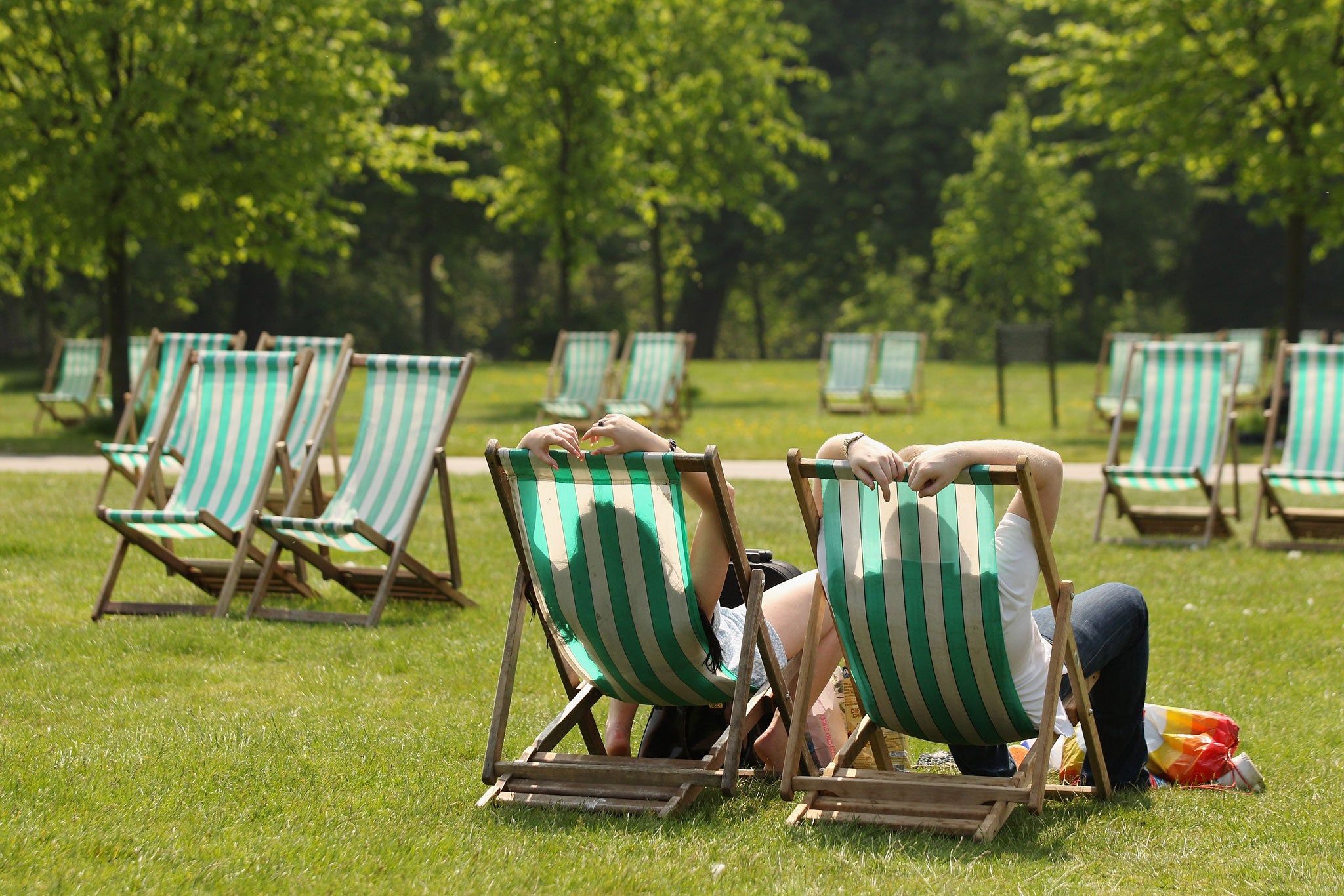No really, happiness is a nearby park
Green spaces offer urban dwellers well-being that lasts longer than a lottery win

The thing you notice in Hyde Park is that within its gates everybody is a nobody. Billionaires are nobodies. Booker prize winners are nobodies. Naked chefs are nobodies. Nobodies are nobodies. Typically it’s death that takes the applause as humanity’s No 1 leveller, but if you haven’t the patience to wait for that, the simplest path to feeling that “all men are created equal” is to pack a sandwich and set up camp in a park. (I am aware that members of the Royal Family also live in Hyde Park. However, they hardly ever leave the confines of their rather dour palace, probably because they too know that this would turn them – on the spot - into nobodies.)
And yet a report this weekend reveals larger, less metaphysical rewards to spending time in urban greenery. Rewards that even those who knew there was something magic at work in parks – your duck-feeders, your dilettantes – might not have had the courage to suggest.
A park within walking distance, researchers have shown, has a sustained positive effect on the mental well-being of city-dwellers. Sustained for how long? “What you see is that even after three years, mental health is still better…unlike many of the other things we think will make us happy”, says study co-author Dr Matthew White of Exeter University. In the long run, presuming you stretch legs in one, a park makes you happier than a promotion or pay-rise. Happier even – says White – than winning the lottery.
So there you have it. Evidence that Victoria, Holland, Debdale, Canon Hill et al have a practical use for citizens beyond navel-gazing and the freedom to jog in short pants. You can find more. In 2008, medical journal the Lancet published an analysis of 360,000 death records showing that the “health gap” between rich and poor was diminished if poorer communities had access to green spaces. Like I said, the park is a leveller. It is also not a given that they exist. We have the Victorians to thank for most of ours. In bankrupt Detroit, the closure of 50 was announced last year (though some may be saved). “The measure of a city’s greatness”, said John Ruskin, who was himself a nobody when in Hyde Park, “is in its public spaces, its parks and squares”.
George Monbiot and other eminent environmentalists blanch at measuring the value – specifically the economic value – of greenery. We should appreciate it as something beyond spreadsheets, they argue. Which is both right and wrong. It would be nice if everyone took the same view. But politicians see more spreadsheets than forests. If we want them to take a bona fide interest in green spaces – urban or otherwise - showing them a park is one thing, proffering a luscious investment opportunity quite another.
Join our commenting forum
Join thought-provoking conversations, follow other Independent readers and see their replies
Comments
Bookmark popover
Removed from bookmarks